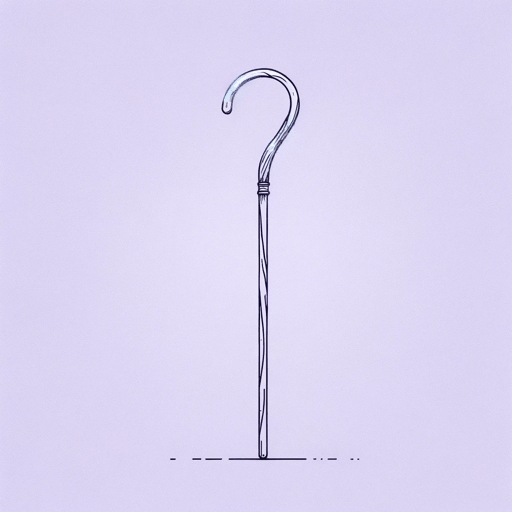40 pages • 1 hour read
Harold PinterThe Birthday Party
Fiction | Play | Adult | Published in 1957A modern alternative to SparkNotes and CliffsNotes, SuperSummary offers high-quality Study Guides with detailed chapter summaries and analysis of major themes, characters, and more.
Summary and Study Guide
Overview
Harold Pinter (1930-2008) had an extensive career as an activist and as one of the most significant English playwrights of the 20th century. The Birthday Party, his first full-length play, was first performed at the Arts Theatre in Cambridge in 1958, under the direction of Pinter himself. The play toured to positive reviews, landing on the West End in London with a different director the following month, where reception was significantly chillier.
The Birthday Party closed after a week because audiences and reviewers were perplexed by the play, with the notable exception of Harold Hobson of the Sunday Times, who praised Pinter for his rare and disarming insight into existential precarity. The Birthday Party defies categorization into traditional genres of comedy, tragedy, or even tragicomedy. The characters speak to each other in pleasantries that are frequently vaguely threatening. Certain moments might draw laughter or pity, but the ending is ambivalent. Another critic applied the label “Comedy of Menace,” which stuck as an apt description of Pinter’s plays, particularly his early work.
The Birthday Party is often considered absurdist—a type of play where the plot is nonsensical, the characters can’t connect with each other, and language is slippery and ineffectual. Time and place are inconstant or unclear, and the characters’ identities are frequently unstable, with major questions left unanswered even at the play’s end. The Birthday Party is considered one of Pinter’s major works and embodies many of these core characteristics of his absurdist style.
Plot Summary
The play centers on Stanley Webber, a disheveled, out-of-work pianist in his late thirties who is staying in a seaside boarding house owned by Petey and Meg Boles, a married couple in their sixties. At the opening of Act I, Meg and Petey play out their morning routine of meaningless conversation while Meg serves Petey breakfast. Before going to work, Petey mentions two strange men who inquired about a room, and Meg is delighted. Meg decides to wake Stanley, giggling wildly despite his angry protests. She fawns over him, sometimes even flirtatiously, undeterred by his responses that alternate between cruel, berating, and mild teasing.
When Meg mentions the two strange men, Stanley is instantly worried but reassures himself. Meg goes shopping and meets Lulu outside, a young woman who is bringing a large, wrapped package. When Lulu sees Stanley, she scolds him for being so ungroomed, and when she asks him to go out with her for some fresh air, he rejects the offer. After Lulu leaves, the two strange men, McCann and Goldberg, arrive, and Stanley slips out the door. They cryptically discuss some kind of job and are vague about details.
Meg returns and greets them pleasantly, claiming that it’s Stanley’s birthday. The men insist that they throw a party, and Meg delightedly agrees. Once the men are in their room, Stanley comes back in. Although he says that it isn’t his birthday, Meg insists that it is and gives him the package Lulu brought in, which contains a child’s drum. Stanley accepts the drum and begins to play it, beating more and more aggressively.
Act II takes place in the evening. Stanley meets McCann, who refuses to allow him to sneak out and miss his party. Petey enters, chats warmly with Goldberg, then leaves for his chess night. Stanley attempts to convince McCann and Goldberg to leave, or at least to leave him alone, but they hurl a barrage of questions and accusations at him, some of which are absurd. Then, they announce that Stanley is dead, and Stanley kicks Goldberg. Before McCann can smash him with a chair, Meg enters, dressed for the party. They all drink and toast to Stanley. Lulu arrives and joins in, and she is quickly taken in by Goldberg’s flirtation. They play blind man’s buff (a game of tag where the person who is “it” is blindfolded), and Meg, the first one blindfolded, finds McCann. McCann is then blindfolded, and he finds Stanley and smashes his glasses. Stanley, in turn, finds Meg and begins to choke her, but McCann and Goldberg rush to stop him. The lights suddenly go out. Lulu faints in fear, and Stanley places her on the table. A flashlight reveals Stanley standing over her and laughing hysterically.
Act III occurs the next morning. Petey reads his newspaper, and Meg, hungover, tells him that Goldberg and McCann ate all of the breakfast. Meg worries about Stanley, who has yet to come down. When Meg brought him his tea earlier that morning, McCann had answered his door. Goldberg enters, and Meg leaves to shop. Petey asks about Stanley, who Goldberg says has had a sudden “breakdown.” Petey wants to call a doctor, but McCann brings in their suitcases, and Goldberg insists that they will take Stanley with them. Petey leaves, promising to return quickly.
Lulu enters and speaks with Goldberg, and their conversation cryptically alludes to some encounter they had after the party: Lulu berates Goldberg for taking advantage of her. Goldberg insists that she encouraged him, and he calls McCann to intimidate her until she leaves. McCann brings Stanley in, now tidily dressed and clean-shaven. Goldberg and McCann make rapid-fire promises about helping Stanley to get better and become successful. When prompted to speak, Stanley can only make some choked, nonverbal sounds. Petey returns and tries to convince them to leave Stanley behind, but Goldberg threatens him, and they leave, taking Stanley with them. When Meg returns from shopping and asks about Stanley, Petey says that he’s still in bed and that Meg should let him sleep. Happily, Meg talks about how wonderful the party was and how she was the most beautiful and popular woman there.
Related Titles
By Harold Pinter




